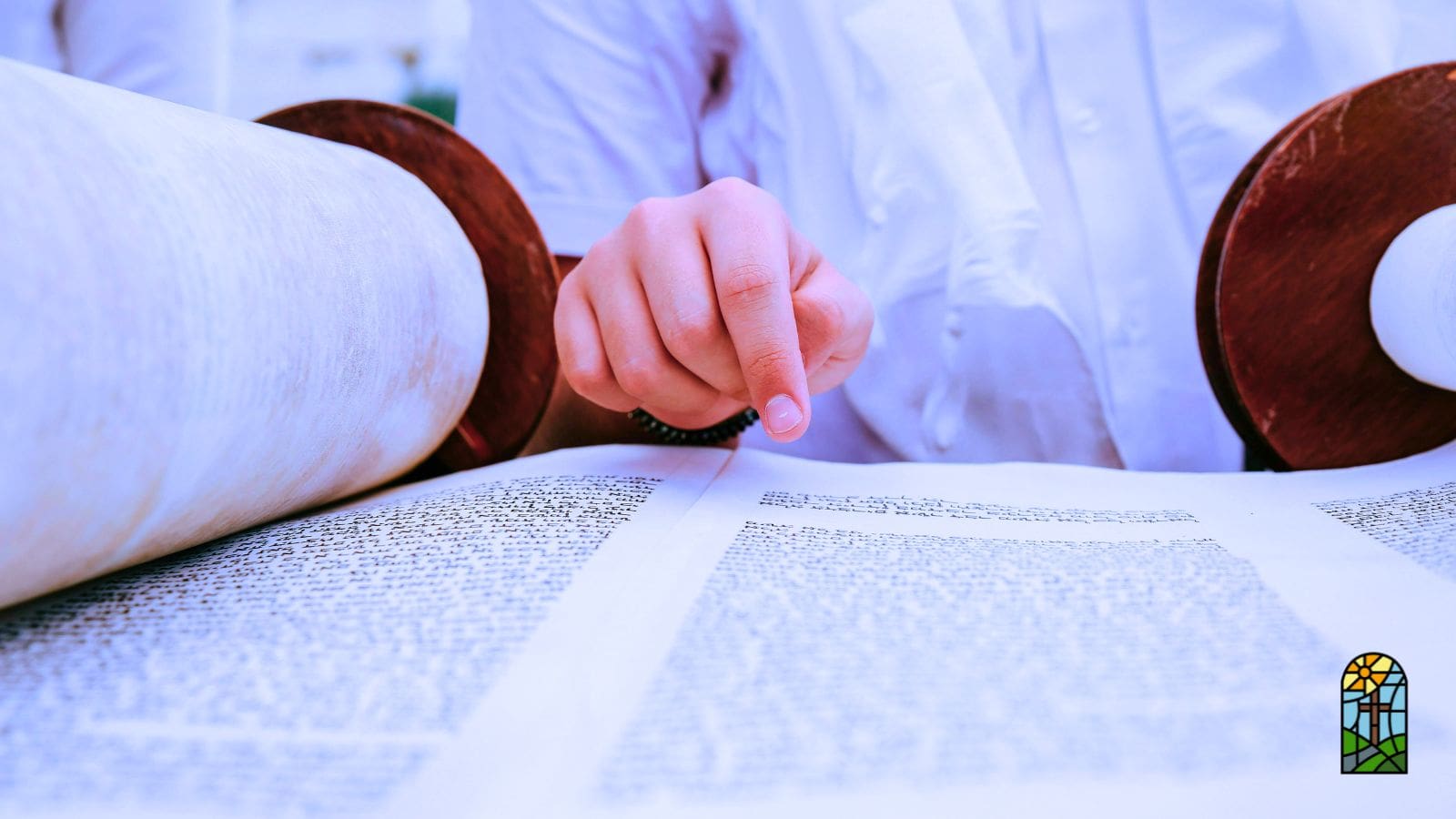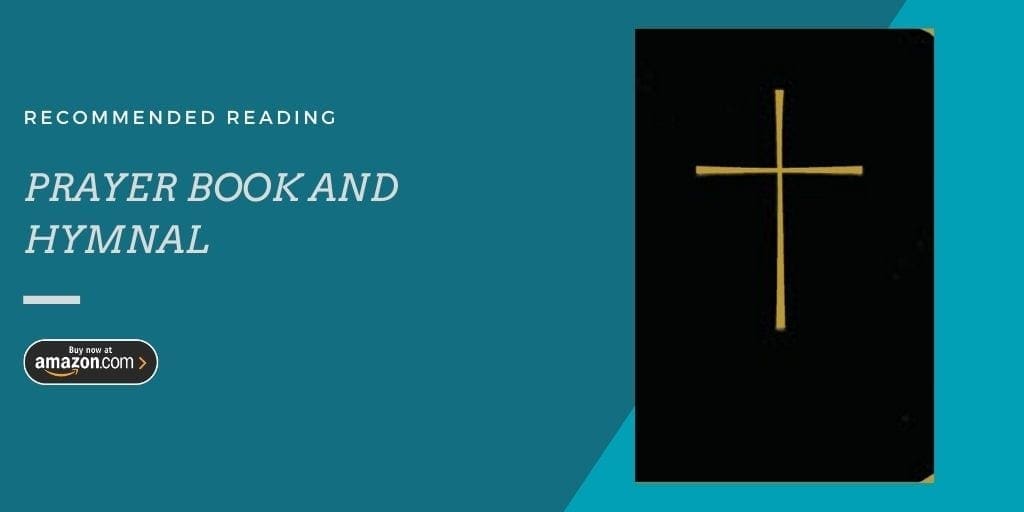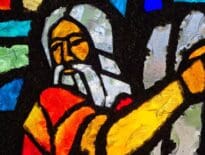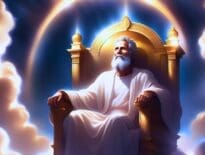In the Catechism (the Outline of the Faith) in the Book of Common Prayer, the third section of questions is about The Old Covenant. This follows the first section of the Catechism that explores God the Father.
The Old Testament is full of messiness and leaves readers with plenty of questions about God and His character. But if you look over what He’s done, particularly through His covenants, you start to see His true heartbeat. And even some of the more challenging records in the Old Testament start to at least make a little more sense. So looking at what’s happening with the Old Covenant(s) is important to our understanding of God. And we’ll see that He’s not the angry, vengeful being that some would make Him out to be. He’s a loving God working to make a way for all of us, despite our contestant rebellion.
And in the spirit of the Catechism, we’re not just looking at the questions and relying on an absolute answer. The Catechism is meant to be the start of a conversation. So as I share the questions and answers from this section, I’m also sharing some of my own thoughts and ideas that have come up in recent conversations.
What is meant by a covenant with God?
A covenant is a relationship initiated by God, to which a body of people responds in faith.
Typically when a covenant is made between two people, it involves both parties coming together and making and agreement on what each party brings to the relationship. Like in a marriage covenant, it’s not a one-sided agreement. Both husband and wife agree to bring something to the marriage. So it seems to me that one of the big keys to this idea of covenant with God is that i’s initiated by Him.
I think the best example of this is in the Abrahamic Covenant (in Genesis 15). In those times, it was common that when a covenant was made between two people, they would cut an animal in half, lay the pieces out on the ground, and the two people would walk together through between the halves saying, “So be it to us if we break this covenant.” And in the account in Genesis 15, we see Abraham preparing the animals in the same way. Then after waiting around and eventually falling asleep, we see the Presence of God move through by Himself and making the Covenant. It’s as if God is making this promise, and saying that it’s all on Him to fulfill. And this is consistent with God’s character, all the way up to the New Covenant with Jesus taking the punishment for our sins on Himself.
So it’s interesting when I see that this definition of a covenant with God is characterized by the fact that it’s initiated by Him. He’s done everything required to make and keep the promise. We only need to respond and accept it. And it’s been that way since the very beginning.
What is the Old Covenant?
The Old Covenant is the one given by God to the Hebrew people.
Overall, we see five covenants in the Scriptures that would be considered “Old Covenant” (and one New Covenant).
- Creation Covenant with Adam – God gave dominion over Creation and the promise of eternal life.
- Covenant with Noah – The promise of protection and a new beginning.
- Covenant with Abraham – The promise of blessing through him to all families on the earth.
- Covenant with Moses – Establishing the Israelites as God’s chosen people.
- Covenant with David – The promise of a lineage that would bring the Messiah.
When this conversation speaks of the Old Covenant, it’s primarily speaking of the Covenant with Moses for the Israelites who have just come out of hundreds of years of slavery in Egypt. It’s a promise of liberation and freedom. And it looks ahead to how God will bless the world through these people (eventually by looking ahead to the New Covenant of Jesus Christ).
Regardless, I love seeing here how God relentlessly pursues His people and works to fulfill His plan to eliminate barriers to relationship with us. All the way to Jesus, you can see the Father making moves and setting everything up. Every piece of this is relevant to how it all comes together in Christ.
What did God promise them?
God promised that they would be his people to bring all the nations of the world to him.
This one is interesting to me. It starts from the idea that all the nations of the world do not follow, or even recognize God as the source of life and all things. It’s actually hard to imagine these days, because there are so many people worldwide who do believe. So even for an atheist, at least you can recognize that there are large numbers of people who believe it, even if you think it’s not accurate.
The world was really devoid of believers, except for this relatively small group stemming from Abraham.
It’s pretty crazy if you think about it. Abram grew up in a culture that worshiped other gods. And he heard from the one true God, and followed His direction to go to a certain place. That faith, passed down in his family for generations is eventually the Hebrew people who were delivered from Egypt in the Exodus, and who God called to be a people set apart for a much greater purpose. It all started with the faith of one man passed down generation after generation.
What response did God require from the chosen people?
God required the chosen people to be faithful; to love justice, to do mercy, and to walk humbly with their God.
This response comes from two angles… the Law and the heart.
By requiring them to be faithful, He is asking them to obey the Law passed on to them through Moses. This makes sense to me, that God would want them to obey certain rules and act a certain way. When I take my kids out somewhere (especially when they were younger), I would always tell them to, “Behave like Kings” (our last name). That meant that I expected them to follow certain rules of behavior that I try to teach them so that they represent our family well. It’s not like I’m just trying to set up some kind of facade so that people think I’m a good parent. I want them to behave in a way that earns them respect and favor. But ultimately, they are representing our family, and I’d like it to reflect positively. And I imagine that it’s the same way with God. He’s set these people apart, so they should live in such a way that shows it.
The other piece of this response comes from a favorite verse of mine in Micah 6:6-8. What does the Lord require? The response speaks to the heart of God. In this passage we see a comparison between the Law (which was the standard) and the three actions of loving mercy, doing justice, and walking humbly with God. And the answer at the time was yes… they were to follow the Law as it was written. But this passage is almost like God saying that he doesn’t care as much about following rules as he does about our hearts being in alignment with His.
Where is this Old Covenant to be found?
The covenant with the Hebrew people is to be found in the books which we call the Old Testament.
This one is a pretty straightforward answer. But I love looking over the Old Testament and seeing how God has worked throughout to bring His will and point to the Covenant that would bring it about once and for all. When you look over the Old Testament with an eye for what God is doing to point us to Christ, it’s amazing how you find a God who has been in relentless pursuit of a relationship with all of His people.
It’s also amazing to see this story expressed in so many different ways. We have the directive writing of the Laws, historical narratives, poetry, songs, prayers, and prophetic words. Together it helps us to see and experience the heartbeat of God from different perspectives.
Where in the Old Testament is God’s will for us shown most clearly?
God’s will for us is shown most clearly in the Ten Commandments.
We’ll certainly be digging into this one more in other sections of the Catechism. But the Ten Commandments is a great place to find God’s standards for living. There are hundreds of laws laid out through Moses, but these ten cover much of what we need.
And we’ll also explore more later how Jesus summarized it even further into, “Love God, and love people.” That summary makes it really clear what it important to God, and what will essentially help us live happier, more fulfilled lives. Thinking about how my kids argue with each other, no matter what another of them says, is that loving people? Certainly not. Loving people would involve using our words more like gifts for those around us, not as weapons. And I could go on with examples, but these Ten Commandments (and Jesus’ Summary of the Law) definitely points us to how we can live more in peace and joy.
final thoughts on The Old Covenant
The Old Testament can certainly be messy. That’s because it involves people with messy lives (just like the rest of us today). But I love seeing how God has worked throughout history. It reveals a great deal about His character and how He values us. And if you look closely, you’ll see the Father, the Son, and the Holy Spirit throughout.
And this Old Covenant is part of His master plan. It sets things in motion, and points to a time when we’ll get the New Covenant where He steps in Himself to make a way for us to not have to fall to our own ruin. So even though the covenants all look a little different, they show His tendencies and desires. He is a good God, and I’m grateful that He’s made a way for us!






0 Comments